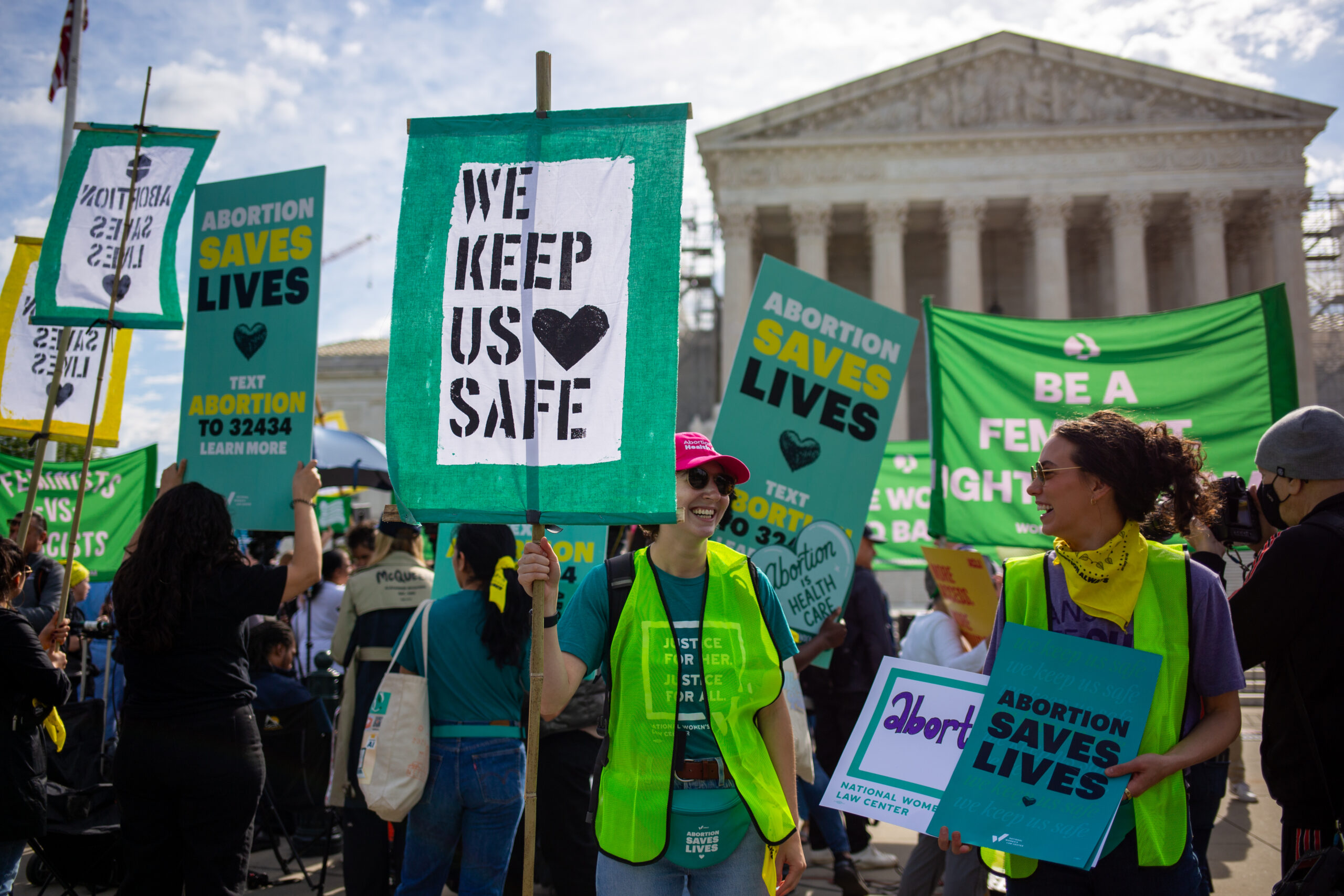Reproductive rights groups rally in Washington DC to defend emergency abortion care

WASHINGTON, DC – Hundreds of reproductive rights, health and justice advocates, legal experts, health care providers and patients gathered today at the “Abortion is Health Care” rally to urge the Supreme Court to protect the right to emergency abortion care. This federally protected right is at risk as the Supreme Court considers whether state abortion bans supersede the protections of the Emergency Medical Treatment and Labor Act (EMTALA).
“Anyone experiencing a health emergency should be able to access the care they need, including abortion, without delay or political interference,” said Fatima Goss Graves, president and CEO of the National Women’s Law Center. “If the Supreme Court sides with the extremists on this case, pregnant women will be denied the right to emergency medical care that was guaranteed by Congress nearly 40 years ago and is a foundational part of patient rights in our country.”
Last month, 27 amicus briefs were filed with the Supreme Court in support of a federal right to emergency abortion care. These amicus briefs were signed by a broad coalition of major medical organizations, physicians, people who have been denied critical health- and life-saving emergency abortion care, former Department of Health and Human Services officials, members of Congress, states, cities, counties, prosecutors, public health experts, legal scholars, businesses, disability rights advocates, victims of intimate partner violence, abortion funds, and more than 100 gender justice, reproductive rights and justice, civil rights, and labor organizations.
During the court’s oral arguments on the case, many speakers from different parts of the country, including other states with highly restrictive abortion laws such as Idaho, Florida and Missouri, shared their own experiences with the impact of Idaho’s efforts to ban emergency abortion care and other attacks on sexual and reproductive health care.
“When I was denied the life-saving abortion care I needed, my pregnancy, which was once a source of hope and joy, began to feel like a death sentence. No one should have to go through that,” said Milissa Farmer, who was denied life-saving abortion care at hospitals in Missouri and Kansas in 2022 after her water broke just before 18 weeks of pregnancy.
Dr. Caitlin Gustafson, a family medicine obstetrician in rural Idaho, said pregnancy complications are unfortunately all too common.
“Before Idaho banned abortion care, patients could rely on a provider they knew and trusted to receive the life-saving care they needed during critical emergencies, such as bleeding, infection or organ failure due to preeclampsia. But now pregnant women in Idaho have lost this important protection, as they are being denied emergency care for pregnancy complications, worsening the maternal health care crisis,” she said.
“The longer Idaho pregnant women have to travel out of state to get the care they need to save their lives, the more maternal health complications and maternal deaths we will see. We will suffer, and people are already suffering, and the physician shortage will get worse, impacting all health care.”
After the arguments, legal experts gave their opinions on what the court heard.
“Several justices have exposed the dire situation in Idaho and other states where pregnant women in crisis are denied the life- and health-saving medical care they need. These justices have recounted the stories of pregnant women who have experienced horrific medical emergencies and been forced to endure them, making it clear what is at stake in this case – the lives and health of pregnant women,” said Michelle Bunker, director of reproductive rights and health litigation at the National Women’s Law Center. “This should be a clear-cut case. Federal law is clear: anyone who goes to an emergency room must receive the medical care they need, including abortion care, regardless of state law.”
The case is scheduled for a Supreme Court decision in June 2024.
For photos from the rally, click here and here.
###
